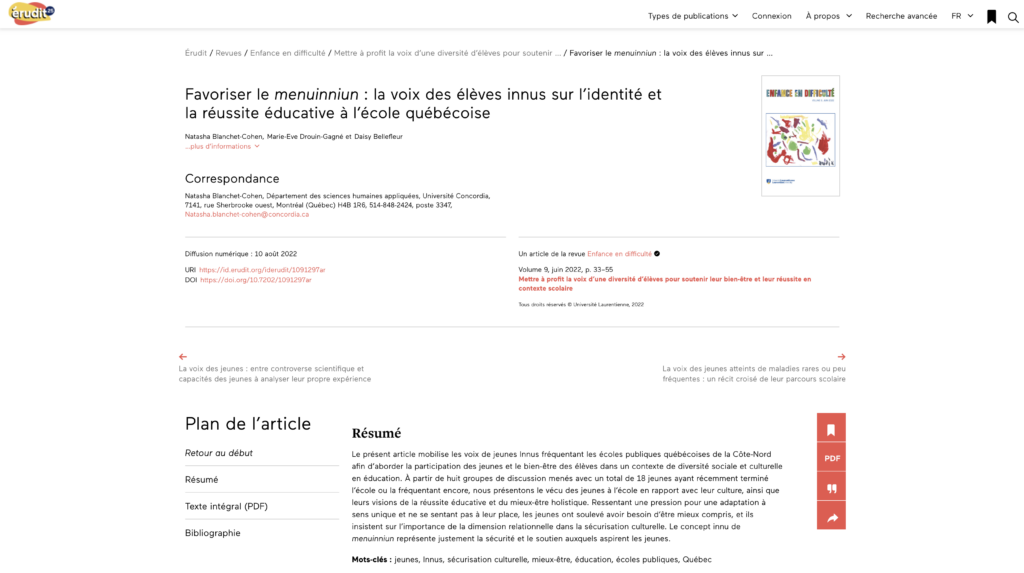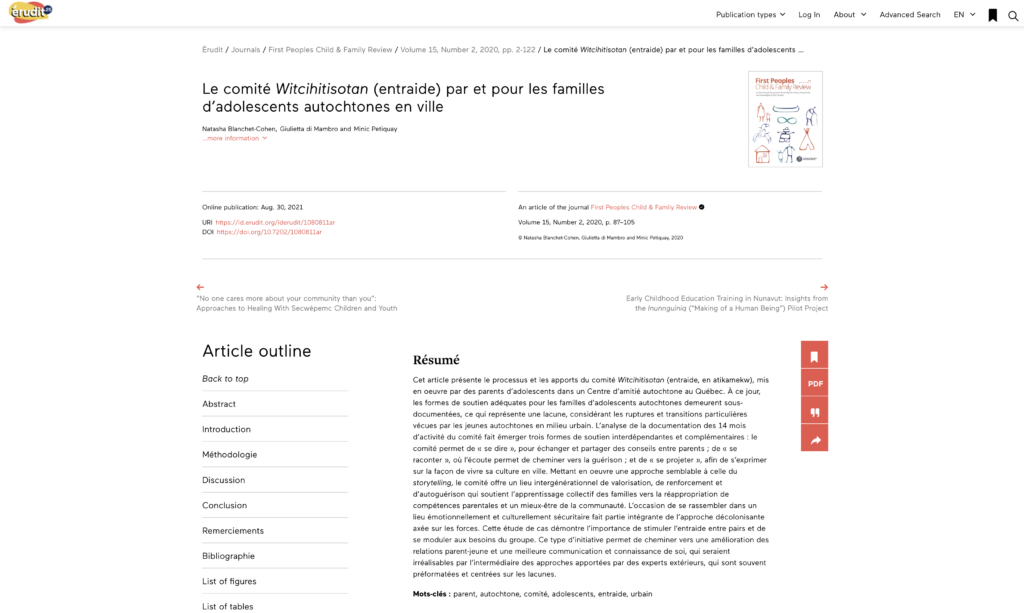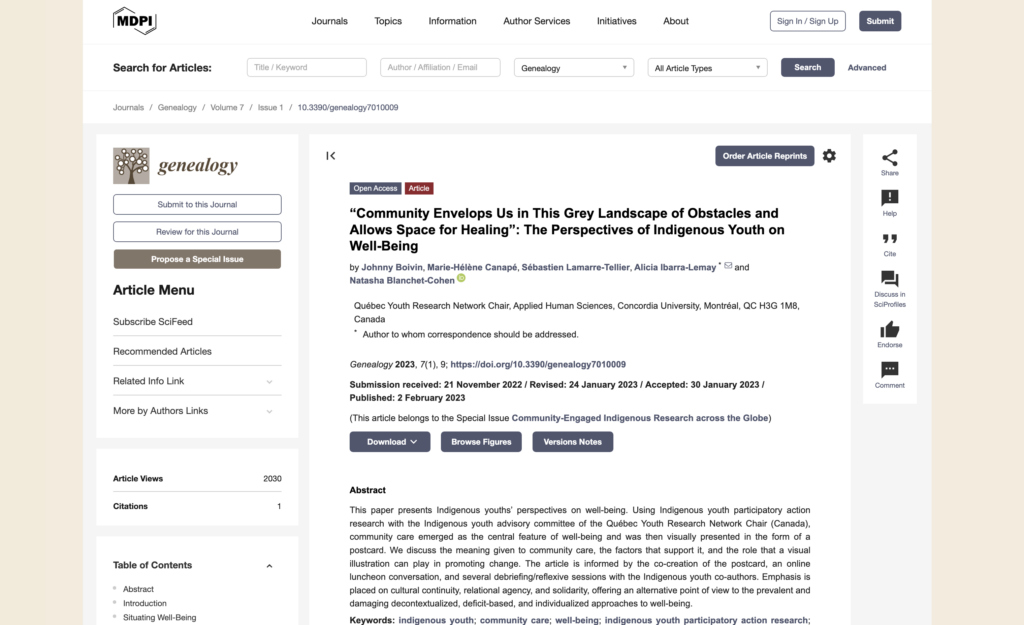Notice bibliographique
Manousaki, D., Barnett, T., Mathieu, M.-E., Maximova, K., Simoneau, G., Harnois-Leblanc, S., Benedetti, A., McGrath, J. J., Henderson, M. et QUALITY Cohort Collaborative Group. (2020). Tune out and turn in: The influence of television viewing and sleep on lipid profiles in children. International Journal of Obesity, 44(5), 1173-1184.
Résumé
Background/objectives: Physical activity is beneficial to lipid profiles; however, the association between sedentary behavior and sleep and pediatric dyslipidemia remains unclear. We aimed to investigate whether sedentary behavior or sleep predicted lipid profiles in children over a 2-year period.
Subjects/methods: Six hundered and thirty children from the QUALITY cohort, with at least one obese parent, were assessed prospectively at ages 8-10 and 10-12 years. Measures of sedentary behavior included self-reported TV viewing and computer/video game use. Seven-day accelerometry was used to derive sedentary behavior and sleep duration. Adiposity was assessed using DEXA scans. Twenty-four-hour dietary recalls yielded estimates of carbohydrate and fat intake. Outcomes included fasting total cholesterol, triglycerides, HDL and LDL-cholesterol. Multivariable models were adjusted for adiposity and diet.
Results: At both Visit 1 (median age 9.6 year) and Visit 2 (median age 11.6 year), children were of normal weight (55%), overweight (22%), or obese (22%). Every additional hour of TV viewing at Visit 1 was associated with a 7.0% triglyceride increase (95% CI: 3.5, 10.6; P < 0.01) and 2.6% HDL decrease (95% CI: -4.2, -0.9; P < 0.01) at Visit 2; findings remained significant after adjusting for adiposity and diet. Every additional hour of sleep at Visit 1 predicted a 4.8% LDL decrease (95% CI: -9.0, -0.5; P = 0.03) at Visit 2, after adjusting for fat intake; this association became nonsignificant once controlling for adiposity.
Conclusions: Longer screen time during childhood appears to deteriorate lipid profiles in early adolescence, even after accounting for other major lifestyle habits. There is preliminary evidence of a deleterious effect of shorter sleep duration, which should be considered in further studies.
Hyperlien
Lien vers l'articlePublication du membre
Tracie BarnettAppartenance aux volets





























